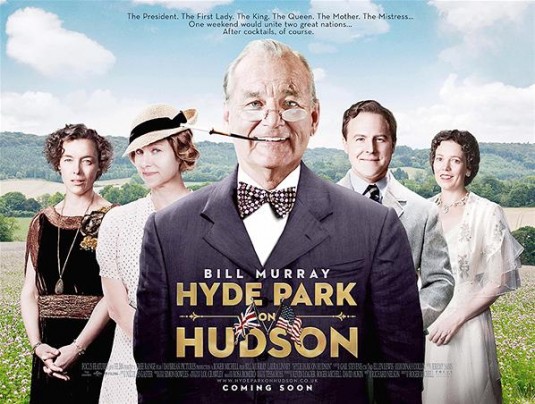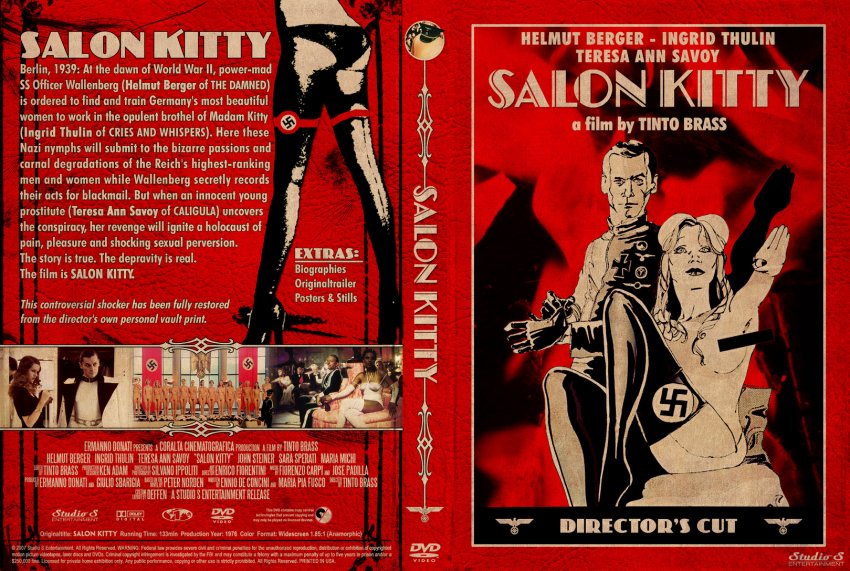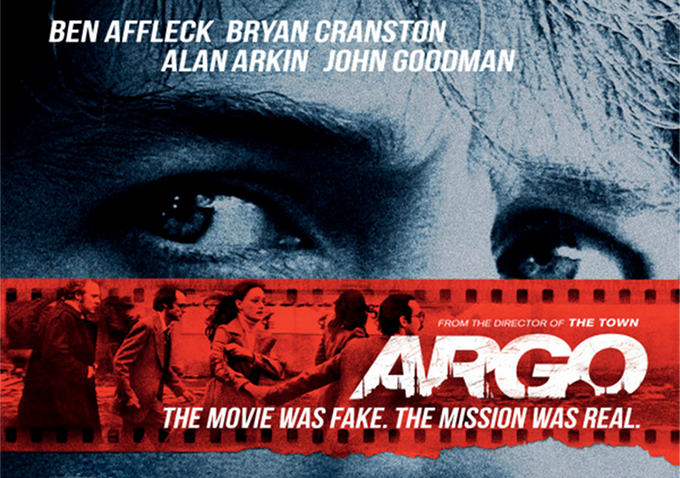Picking
up where I left off, here's yet another batch of recently seen films
that have not been critiqued on this my blog in sufficient detail and
thus have to make do with a mini-review. The term 'missed movies' no
longer applies here, since I have seen these films after my PC was
returned to me and I was back online again. Truth is, now that I am
writing for MovieScene and screening films for audiences at Provadja,
next to my regular work at Pathé, I just don't have time for
old-fashioned extensive reviews anymore. I am watching more movies
than I can handle, so to say. Expect to see this type of mini-review
more often and 2,000 word reviews less and less around here. It may
not be a bad thing per se, considering word has reached my ears
regarding modern man and his lack of time and interest for lengthy
movie discussions. By keeping it short and simple I might actually
attract more readers, even though one could argue my blog is dumbing
down. Not to worry, I'm sure there's still many a long review to come
(MovieScene reviews aside, though they're of medium length really),
at least once I've caught up with mentioning all the films I've seen
in the past months. Getting there, slowly but surely.
Lore:
****/*****, or 7/10.
Fascinating
microcosmic (post) WW II tale from a German perspective, focusing on
the plight of teenage girl Lore, shortly after Germany has
capitulated to the allied forces. Lore has had a good life in a happy
Nazi family until she finds her world shattered by the Führer's
death and the downfall of the Third Reich. Her parents, being devout
Nazis, have to run before the Allies catch up with them and are
forced to leave their children behind in the process. Lore, a
powerful performance by the young Saskia Rosendahl, has to trek her
way with her younger brothers and sisters to distant Hamburg across
newly occupied territory, dodging Russian forces and her own
countrymen who have degenerated into lawlessness. Along the way she
meets a young Jewish man, freshly released from Auschwitz, who
uneasily teams up with them to their mutual benefit for mere
survival. The movie does a great job of portraying the lost German
generation that grew up in the Third Reich and didn't know better,
but had to cope with their parents' atrocities and lies afterwards.
The key issue for Lore is trust: she trusted Hitler and her parents
unconditionally, only to be betrayed by their failure. Now she has to
trust a man whom she has been raised to hate, despite the genuinely
helping hand he offers (which quickly earns him the faith of Lore's
siblings, who are just too young to understand the stakes involved).
Matters are complicated further when she develops a strange, possibly
romantic, attraction to the guy, something he may or may not be
exploiting. To Australian director Cate Shortland's credit, the film
is completely spoken in German. She also presents a great metaphor
for puberty, when a child's world is changed completely as are its
feelings for those it has always taken for granted, without getting
overly preachy. However, a less lyrical and dream like quality, plus
a little faster pacing, might have made her movie more accessible.
De
Ontmaagding van Eva van End: ****/*****, or 8/10.
Whaddayaknow,
a good Dutch movie! Not surprisingly, considering director Michiel
ten Horn used the fabulous work and style of Wes Anderson for
inspiration, creating a definite Dutch counterpart of that particular
auteur's work. All the typical Anderson ingredients are there (except
for Bill Murray), including wacky characters, colourful visuals,
dysfunctional family drama and a funky soundtrack. And decent writing
of course. The Van End family members have a hard time connecting to
one another and lead their own little lives in their own silly little
worlds, until daughter Eva takes home a German foreign exchange
student. The boy turns out to be the perfect human being, an angelic
blond persona with great empathy for the whole world, whose healthy,
altruistic life style soon creates havoc at his guest home as the
whole family reacts differently to his presence and their natural
balance is severely upset, exposing a few dirty family secrets in the
process. And yes, Eva gets her cherry popped as the title indicates,
though not in the way you would first expect. Solid acting,
especially for Dutch actors, though of course young Austrian actor
Rafael Gareisen leaves the greatest impression. The movie leaves
ample room for both genuinely heartfelt drama and funny jokes and
situations, some surprisingly edgy and politically incorrect. Ten
Horn does a fine job of translating Anderson to a Dutch setting
(unconsciouslyly or not, but it seems utterly unlikely he has never
heard of his American inspiration), making the movie look distinctly
Dutch but not feeling like any other Dutch film, all for the better.
It's a real shame Dutch audiences prefer to watch crap like Verliefd
op Ibiza and Het Bombardement over little gems like this,
but it's good to know not all hope is lost for Dutch cinema thanks to
talented directors like Ten Horn inspired by all the right people.
Zero
Dark Thirty: ****/*****, or 8/10.
Kathryn
Bigelow continues to critique America's army following her big Oscar
breakthrough The Hurt Locker (2009). This time she focuses on
the hunt for Osama bin Laden by the driven and resourceful female CIA
agent Maya (excellent bit of acting on Jessica Chastain's part),
inspired by true events, not all of which have been formally
disclosed. Maya gets increasingly obsessive over the Agency's
inability of locating Bin Laden and soon makes it her personal job to
see the hunt come to an end, especially after dear colleagues of her
die in related terrorist bombings. The climactic chopper showdown at
Bin Laden's villa where a team of Navy SEALs has to quietly fight its
way through the building to claim its prize was one of the most
rewardingly suspenseful scenes of 2012. And to Bigelow's credit, the
face of the Al-Qaeda leader was never even shown, clearly stating the
movie is not so much about the man himself, as about Maya's long road
to get to him. The movie's merit as a genuinely good film was
overshadowed by the controversy surrounding Bigelow's explicit
portrayal of torture of terrorist suspects at the hands of American
agents: no doubt such crossing of political and ethical lines took
place historically, but Bigelow was said to condone it. However,
Bigelow makes no statement of her own, just showcasing events as they
supposedly happened. The torture could have proven to be instrumental
in tracking the most wanted man alive down in the long run, but she
presents it as just another part of the bureaucratic machinery: a
frightfully gruesome part though, revealing more than we would want
her to reveal on the subject, and as such already indicating torture
sure is no fun. Nevertheless, she was denied a well deserved Oscar or
two: Zero Dark Thirty's only win was for Sound Editing, an
award the movie had to share with Skyfall in a rare 'tie'
situation at the Academy.






















